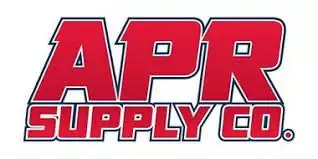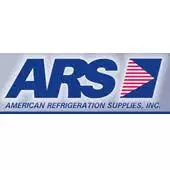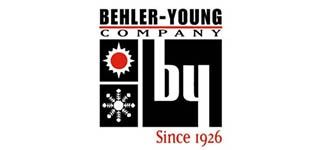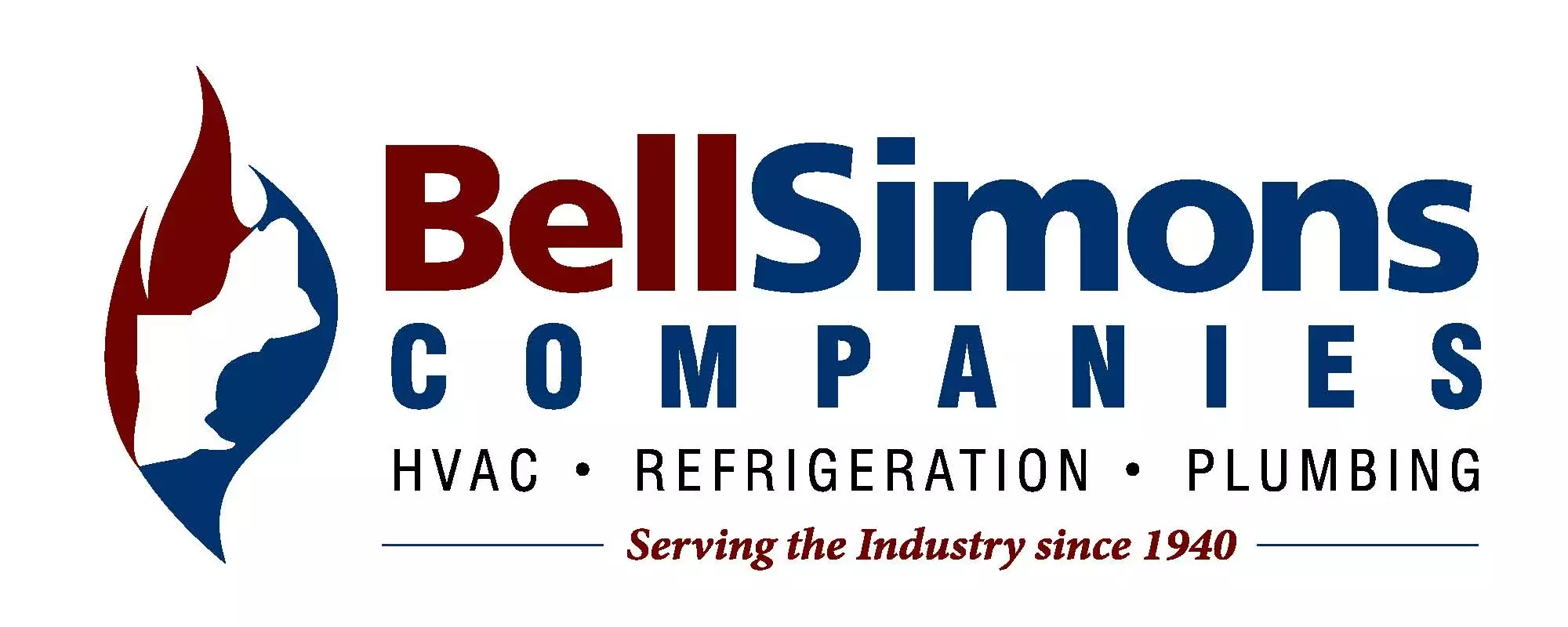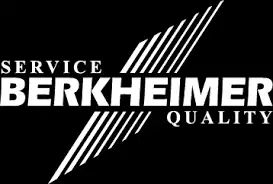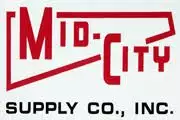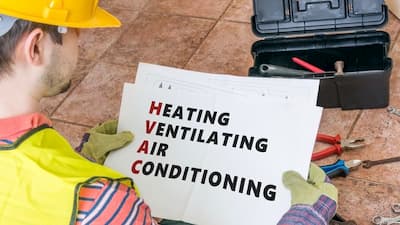WHAT IS HVAC?
What Does HVAC Stand For?
If you are not sure about what HVAC is or what it means, then you are in the right place. HVAC is an abbreviation that stands for Heating, Ventilation, and Air Conditioning. Sometimes it is extended to HVAC/R, which includes Refrigeration. HVAC is a system used to provide comfortable temperatures and indoor air quality to specific environments. HVAC systems are located in residential, commercial and industrial environments and its applications can vary greatly depending on the setting in which it is being used. It is a core part of how a building functions, how much it costs to maintain, and how comfortable and safe it is. In this article, we will talk about the key things that you need to know about HVAC and the service providers who install and maintain it.
What is Heating, Ventilation and Air Conditioning?
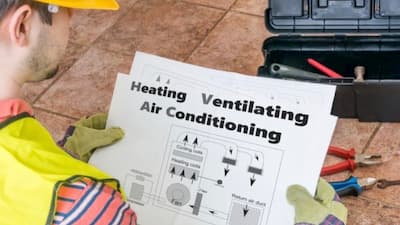 We've already gone over what does HVAC stand for, but in more detail, HVAC determines the internal climate of a building. Proper heating, for example, means efficiency and effectiveness at a cost and strength appropriate to the local weather. Ventilation is the key for preventing the buildup of mold, mildew, and other problems that moisture can create. In many ways, HVAC is all about controlling two things: moisture and temperature. The right HVAC equipment will keep the building comfortable and preserve its structural integrity while reducing monthly utility bills. Leaving HVAC problems alone without addressing them can lead to damage that would be more costly than addressing the issue in the first place, so it's important to stay on top of HVAC service and maintenance. Depending on the state you live in, there are often regulations and codes about HVAC services. In addition, if you are running a business, especially one like food service that has health and safety concerns, the codes are often even stricter. Make sure you are aware of all local laws and that you consult state and local authorities to ensure that you are in compliance, particularly if you want to start some kind of project or renovation that impacts HVAC.
We've already gone over what does HVAC stand for, but in more detail, HVAC determines the internal climate of a building. Proper heating, for example, means efficiency and effectiveness at a cost and strength appropriate to the local weather. Ventilation is the key for preventing the buildup of mold, mildew, and other problems that moisture can create. In many ways, HVAC is all about controlling two things: moisture and temperature. The right HVAC equipment will keep the building comfortable and preserve its structural integrity while reducing monthly utility bills. Leaving HVAC problems alone without addressing them can lead to damage that would be more costly than addressing the issue in the first place, so it's important to stay on top of HVAC service and maintenance. Depending on the state you live in, there are often regulations and codes about HVAC services. In addition, if you are running a business, especially one like food service that has health and safety concerns, the codes are often even stricter. Make sure you are aware of all local laws and that you consult state and local authorities to ensure that you are in compliance, particularly if you want to start some kind of project or renovation that impacts HVAC.
What is HVAC: Heating
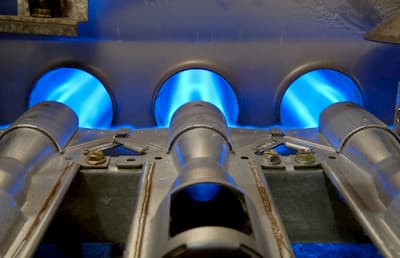 Heating of a building entails generating heat locally and distributing it to the designated area. This is most often performed through heat transfer using air or water as the medium. The need for heating various tremendously based on your location. The farther north the home is located, the more important it is to have consistent access to heat in winter months. Winter will also be longer, so the heat needs to be available for a greater proportion of the time. This is particularly true in areas with increased snowfall, because during a storm and afterward it might be difficult or impossible for an HVAC service worker to reach the site for repairs. Heating is important in lower latitudes as well, because even parts of the South can get cold in the winter.
Heating of a building entails generating heat locally and distributing it to the designated area. This is most often performed through heat transfer using air or water as the medium. The need for heating various tremendously based on your location. The farther north the home is located, the more important it is to have consistent access to heat in winter months. Winter will also be longer, so the heat needs to be available for a greater proportion of the time. This is particularly true in areas with increased snowfall, because during a storm and afterward it might be difficult or impossible for an HVAC service worker to reach the site for repairs. Heating is important in lower latitudes as well, because even parts of the South can get cold in the winter.
Usually, heating is performed using a boiler, furnace or heat pump. Boilers heat water locally and distribute it via pumps to individual zones. The hot water can then be used to heat the zones by passing it through radiators and other distributors. They can also be set up to provide domestic hot water in lieu of a hot water heater. Furnaces heat air locally and distribute it to the designated areas through ductwork. Heat pumps are part of a central air system in which it is possible to reverse the heat transfer in order to provide both heating and cooling. In a few cases, homeowners make use of alternative ways of heating their house, like a stone wall that absorbs solar heat, but these are rare instances.
That means the core of home heating is the water boiler or furnace. In general, the newer the boiler or furnace is the more efficient and durable it will be. Energy Star publishes the predicted cost of running each model of boiler that it examines, so that is a useful guideline for the monthly cost of the boiler. However, that doesn't take into account the possibility of a breakdown and repair or replacement. Problems tend to crop up more often in the winter because of the increased strain on the boiler. A good boiler should have a warranty and an estimate of its useful lifespan.
HVAC professionals can handle different aspects of heating, from maintaining boilers and furnaces to installing new heating systems. Although it does not fall under HVAC directly, insulation and weatherization can have a huge effect on heating costs and effectiveness. An older, drafty house will leak heat faster, but weatherization can help seal up the gaps and install more insulated windows, keeping heat in and reducing costs. For renters, many states and municipalities have laws about the minimum temperature that a rented space can reach. For example, a city might have a rule that the heat in an apartment must turn on if the outside temperature is below 40 degrees and the inside temperature is below 60 degrees. Any landlord who doesn't follow those rules could face fines and penalties.
What is HVAC: Ventilation
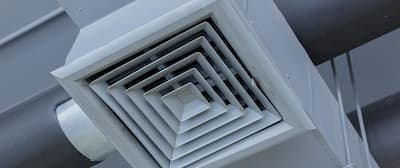 Ventilation might be the least exciting aspect of HVAC, but it is no less important. The primary importance of ventilation is to ensure that moisture does not linger in the house, particularly in the bathroom. Having too much moisture causes mold, mildew, and water damage. These consequences range from minor to potentially life-threatening, so proper ventilation is crucial. A bathroom should have an exhaust fan that turns on automatically or manually. A bathroom where the only ventilation is a small window is not in good shape.
Ventilation might be the least exciting aspect of HVAC, but it is no less important. The primary importance of ventilation is to ensure that moisture does not linger in the house, particularly in the bathroom. Having too much moisture causes mold, mildew, and water damage. These consequences range from minor to potentially life-threatening, so proper ventilation is crucial. A bathroom should have an exhaust fan that turns on automatically or manually. A bathroom where the only ventilation is a small window is not in good shape.
Businesses often face much more complicated ventilation problems. For example, any business that involves cooking, fumes, or chemicals usually needs to follow strict rules about having a fume hood and other ways of controlling the fumes. These fumes might be toxic or dangerous and they need to be controlled in indoor spaces. Failing to control them can also increase the risk of a fire. Ventilation tends to become more complicated as buildings get larger. It might entail bigger and more powerful circulation systems and pumps or fans.
Ventilation generally does not affect the comfort of the occupants of the space as much as heating or AC. That means people tend to think about it less. That can be a problem if something goes wrong in the ventilation system and nobody bothers to check on it or schedule a repair. A problem that festers for a long time can lead to bigger damage. This is at its worst in the case of mold, because mold grows and multiplies and the longer it stays around, the more damage it does through the spores in the air, which are toxic.
Ventilation is grouped with heating and air conditioning because it tends to work in concert with those services and because it sometimes shares important infrastructure with them. Likewise, repairing and maintaining ventilation uses many of the same skills and tools as heating and air conditioning. The ventilation systems need to be checked occasionally. They are the front line fighters in the war against mold.
What is HVAC: Air Conditioning
 In terms of thermodynamics and geography, air conditioning and heating are similar. They aren't completely similar, though. AC can take the form of a series of window or wall units that work individually, or it might be "central air" that combines cooling units into one larger system and distributes cooling through ductwork. Air conditioning can also be performed through the use of a chiller. Chillers cool a fluid locally before distributing it through a piping system to various areas to be cooled. In any case, AC requires power to work, and a constant flow of power at that. This means that AC is often one of the largest utility bills, particularly in the summer. Particularly in the case of central air, the AC unit will be a single large machine located outside the house. For window units, the air conditioner itself hangs outside the house through the window and works by taking in outside air, filtering it, cooling it, and releasing it inside.
In terms of thermodynamics and geography, air conditioning and heating are similar. They aren't completely similar, though. AC can take the form of a series of window or wall units that work individually, or it might be "central air" that combines cooling units into one larger system and distributes cooling through ductwork. Air conditioning can also be performed through the use of a chiller. Chillers cool a fluid locally before distributing it through a piping system to various areas to be cooled. In any case, AC requires power to work, and a constant flow of power at that. This means that AC is often one of the largest utility bills, particularly in the summer. Particularly in the case of central air, the AC unit will be a single large machine located outside the house. For window units, the air conditioner itself hangs outside the house through the window and works by taking in outside air, filtering it, cooling it, and releasing it inside.
Like boilers, air conditioners have gotten more efficient over time and Energy Star rates how much power they consume and how much they should cost each month. Because there is such a strong seasonal aspect to air conditioning, some people take down their window units and put them away outside of the summer while others leave them up all year. This matters because a window with an AC unit is a worse insulator than otherwise, so it can affect heating.
New AC units provide more controls as well as extra features to make sure the unit is only cooling as much as you need. For example, it can automatically shut down at a certain temperature. Air conditioning plays a big role in home and office comfort. In fact, in the office the finer control from a new AC system is critical because people who might not have the same temperature preferences have to work with each other and near each other. HVAC technicians can not only fix old units: they can work with you to help design and plan how and where to locate air conditioners in a building.
With the growth of data centers, server rooms, and cloud computing services HVAC has become an integral part these technologies. Large banks of computers that undergo heavy use heat up significantly and need sophisticated cooling systems to ensure that they remain in working order. The environments that hold these computers could be as small as a closet to as large as a football field, and the computers might be stacked, grouped together in sections, or out in the open. That presents a series of tough challenges for HVAC technicians. They keep the entire area cool and ensure that the temperature is even throughout, so that one group of computers isn't getting warm while another one chills. Moreover, accomplishing all of this while minimizing costs is a serious issue because that much cooling requires a lot of power.
Other industries need cooling as well, such as chemical plants. Some large buildings have a hard time staying cool simply because of their size, so they need more complex systems than a home. These include office complexes, warehouses, music venues, and sports arenas. The problem of maintaining a proper temperature for these spaces is unique to each one, because they have different climates, different patterns of use, and different needs. HVAC supply for these cases involves cooling machines as well as distribution channels and temperature monitors to ensure that the temperature is at the right point all throughout the space. It is the flip side of heating and still requires manipulating temperature, but involves a different toolkit.
What Is HVAC/R: Refrigeration
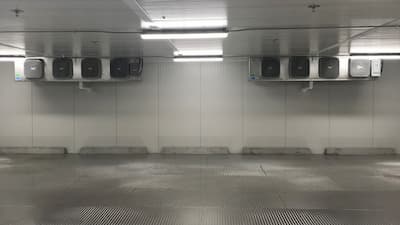 The definition of HVAC can also be expanded to incorporate the field of refrigeration of HVACR. This generally does not refer to domestic refrigerators, but the commercial cooling systems that are in use in supermarkets, restaurants, and other businesses that need to keep something cold. Refrigeration plays a vital role in the food industry, without it we would be limited to eating only local foods with limited shelf life. Refrigeration makes it possible to keep food longer by slowing the growth of bacteria. Bacteria grows best above 40 degrees Fahrenheit. For this reason refrigerated spaces must consistently maintain temperatures at or below 40 degrees. Refrigeration systems can vary in size dramatically from very small reach-in refrigerators to very large warehouse coolers. Refrigeration systems are in many ways similar to Air Conditioning but are able to obtain lower temperatures.
The definition of HVAC can also be expanded to incorporate the field of refrigeration of HVACR. This generally does not refer to domestic refrigerators, but the commercial cooling systems that are in use in supermarkets, restaurants, and other businesses that need to keep something cold. Refrigeration plays a vital role in the food industry, without it we would be limited to eating only local foods with limited shelf life. Refrigeration makes it possible to keep food longer by slowing the growth of bacteria. Bacteria grows best above 40 degrees Fahrenheit. For this reason refrigerated spaces must consistently maintain temperatures at or below 40 degrees. Refrigeration systems can vary in size dramatically from very small reach-in refrigerators to very large warehouse coolers. Refrigeration systems are in many ways similar to Air Conditioning but are able to obtain lower temperatures.
What is HVAC: Conclusion
 If you have forgotten what HVAC stands for, it's Heating, Ventilation, and Air Conditioning. They all relate to moisture and temperature. Having a failure in any one of them can be a catastrophe. Paying closer attention to the details of the HVAC systems in your home or business is rewarding because it means you can be more productive if something breaks. The older all of this equipment is, the less efficient it is. Not only does that mean that it will cost more per month, but it also tends to make the equipment break faster.
If you have forgotten what HVAC stands for, it's Heating, Ventilation, and Air Conditioning. They all relate to moisture and temperature. Having a failure in any one of them can be a catastrophe. Paying closer attention to the details of the HVAC systems in your home or business is rewarding because it means you can be more productive if something breaks. The older all of this equipment is, the less efficient it is. Not only does that mean that it will cost more per month, but it also tends to make the equipment break faster.
Ideally, HVAC is something that just works in the background and you do not need to think about it at all. In practice, HVAC requires attention before, during, and after things go wrong. Having working heat or AC as the weather dictates is crucial for comfort. Ventilation is important all year round to ensure moisture doesn't take hold in the walls. The right technicians and HVAC suppliers can head off a lot of future costs if they can solve the problem before it worsens.
If you or someone you know is concerned about the HVAC systems at their home or business, then it's a good idea to do some research about the problem and learn more about what might have gone wrong and how to fix it. Resources for this include Internet discussions and contacting the manufacturers. A little bit of knowledge will help the HVAC worker get things up and running, at least until the next time something breaks. Until then, be sure to always know where there's an HVAC supply near me!













